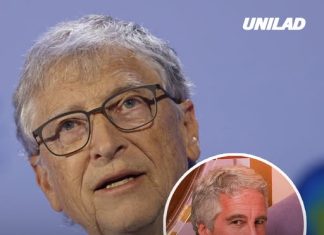A new survey has revealed that Generation Z believes “old age” begins far earlier than previous generations have typically thought. Find out more in the article below.
The Surprising Age Gen Z Considers ‘Old’
According to the recent survey, many Gen Z participants—those born roughly between 1997 and 2012—believe that people become “old” at the age of 60. While that might not sound too surprising at first glance, what stands out is that some respondents said they associate old age with people as young as 40.
This contrasts sharply with older generations, who often define old age as beginning around retirement age—typically 65 or older. The shift in perception seems to suggest that today’s youth view life stages differently, influenced by social media, digital culture, and changes in lifestyle norms.

Why Gen Z’s Perception Might Be Shifting
Experts say Gen Z’s view of aging may be influenced by the fast-paced, youth-centered environment they’ve grown up in. With the rise of influencers, trends, and apps that reward youthfulness, it’s easy for anyone over 30 to feel like they’re being pushed into “irrelevance.”
“In a world where trends change daily and algorithms favor the young, people start to associate age with being out of touch,” said one psychologist specializing in generational studies. “This doesn’t necessarily reflect reality, but it does reveal how heavily digital life influences Gen Z’s worldview.”
There’s also the issue of career and economic anxiety. Many Gen Zers feel pressure to “make it” young, and if they haven’t achieved their goals by 30, they may view themselves as having missed their peak.
How Views Differ Across Generations
Interestingly, while Gen Z may believe 60 is old, baby boomers and Gen X often don’t consider themselves old until their late 60s or even 70s. Many of them stay physically active, work longer, and remain socially and professionally engaged far beyond what was once considered the traditional “retirement” phase. Millennials, who are now in their late 20s to early 40s, seem to straddle the line—acknowledging signs of aging earlier than previous generations, but resisting the label of “old” well into midlife.
This generational gap reveals how subjective the concept of aging really is and how it’s increasingly shaped by social context rather than just biological milestones.
Ageism in a Youth-Focused World
The survey has also sparked discussion around ageism—especially how negative views of aging can start early and contribute to harmful stereotypes. Some commentators argue that associating 40 or 50 with being “old” could reinforce discrimination against older adults in the workplace, media, and healthcare systems.
“It’s essential to challenge the idea that being older means being less valuable,” one aging expert noted. “Age is not just a number—it’s an experience, and older generations have a great deal to offer.”

Reframing the Aging Conversation
In response to the survey, many older individuals have taken to social media to share what they were doing in their 40s, 50s, and 60s—ranging from running marathons to starting businesses or learning new skills. These stories serve as powerful reminders that age does not define ability or relevance. Perhaps the challenge moving forward is to shift the narrative—not to fear aging, but to embrace it as a continued stage of growth and evolution.

















